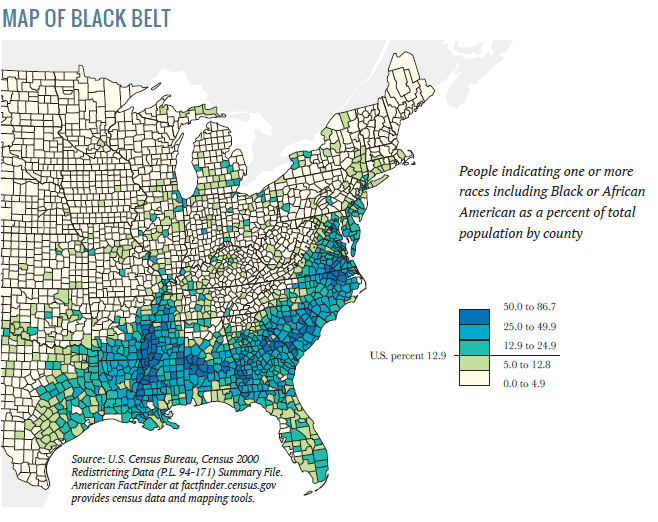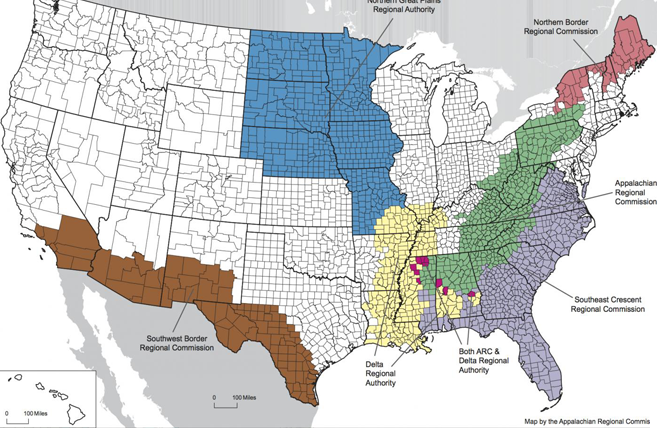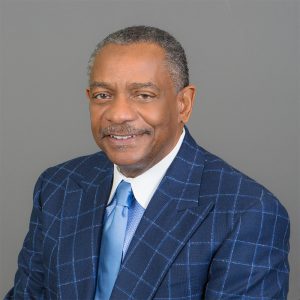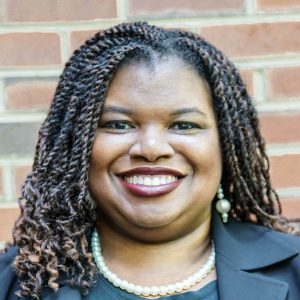A Strategic Response to the Coronavirus Pandemic for the African American Working Poor
The coronavirus pandemic has been enormously disruptive to all of our lives. However, the impact on the African American working poor has been especially traumatic.1
African Americans are disproportionately concentrated in low-wage hospitality and service sector employment.2 When the coronavirus pandemic shut down the American economy, nearly all of these workers lost their jobs, except those classified as essential employees.
In addition, a host of African American civil servants—police, firefighters and other emergency personnel, as well as public school teachers—are concentrated in full-time jobs that do not pay them enough to cover basic needs.3 Prior to the pandemic, some were homeless “couch surfers.”4 Many moonlighted in part-time jobs that disappeared in the pandemic-induced business shutdowns, leaving them without a financial safety net to weather the crisis.5
Making matters worse, a significant number of these working-poor African Americans are caregivers for their own children, another family member (most often an older parent or grandparent), or both. For them, food insecurity was a problem prior to the coronavirus pandemic. Now it is an even bigger issue, as school closings have left their children without the benefit of school-based nutrition programs. In addition, any older adult in the household may no longer receive much-needed daily sustenance due to the strain the pandemic has imposed on food banks and other community-based nutrition programs.
Thus, for working-poor African Americans, the pandemic-induced challenges are not only financial; they are also social and psychological.6 For those who remain gainfully employed, the emotional toll of simultaneously trying to work and look after the well-being of their own families can be enormously stressful and, in some instances, debilitating. In addition, potential exposure to the coronavirus remains a scary proposition for many, since 70 percent of American low-wage workers do not receive paid sick leave and many do not have the option to take unpaid sick leave.7
Due to a historical legacy of discrimination in education, housing, employment and pay, the African American working poor are not hard to find. Many are concentrated in the so-called Black Belt—an elongated stretch of hyper-segregated and concentrated poverty communities extending roughly from Washington, D.C. southward along the South Atlantic seaboard to South Florida, then turning westward and winding through the Deep South (see Figure 1).8
Without question, living conditions in these communities have worsened since the coronavirus pandemic forced a literal shutdown of the economy. Bold leadership and new and innovative strategies are necessary to revive these communities and rebuild the lives of the people who live in them. More specifically, America’s Black Belt needs a coherent, place-based redevelopment strategy.
In 2008, Congress created the legal apparatus to address the area’s long-standing challenges, which the coronavirus pandemic has exacerbated. The Southeast Crescent Regional Commission (SCRC) is one of seven such commissions established by Congress to address regional economic underdevelopment or distress throughout the U.S. (see Figure 2).9
Between fiscal years 2008 and 2018, Congress authorized $30 million in annual funding for the SCRC. In 2019, it authorized $33 million. However, throughout this period, Congress only appropriated $250,000 annually to support the SCRC, which largely explains why, as of March 2019, it is no longer active.10
If there were ever a time for Congress to revive and adequately fund the SCRC, it is now. The Black Belt urgently needs a contemporary New Deal-style program that focuses on fixing not just roads, bridges, airports, seaports and broadband access issues, but also sick buildings—aging and structurally deteriorating houses, schools and public venues that expose Black Belt residents to a host of environmental hazards (mold, mildew, asbestos and lead) that suppress the immune system and create racially disparate vulnerabilities and outcomes to life-threatening events like the coronavirus pandemic.11 That the current crisis affects African Americans disproportionately—in terms of both rates of infection and deaths—should not be surprising given this state of affairs.
Congress should fund the SCRC to develop and implement a roadmap for inclusive and equitable development in the region. That roadmap must:
- Ensure that all development and redevelopment aligns to the maximum extent possible with the triple-bottom-line principles of sustainability; that is, does no harm to the environment and natural resources, adheres to principles of social justice and, in the process, returns equitable shareholder/stakeholder value.12
- Create an inclusive supply chain management system that levels the playing field for historically underutilized black businesses that aspire to access government contracts to fix deteriorating spaces and places in the region.13
- Dismantle barriers to economic participation that are the product of discriminatory policymaking, especially in the areas of crime and criminal justice, which disproportionately affect people of color in general, and black males in particular.14
- Leverage social impacting investing and the diverse set of available financial tools to fund resilient community development.15
To succeed, the SCRC must mobilize collective ambition around these core inclusive, equitable and sustainable community development principles. To paraphrase Jim Collins, author of “Good to Great”,16 it must ensure that all of the Black Belt’s diverse stakeholders, irrespective of political affiliation, are on this “new New Deal” bus, seated in the right seat and headed in the right direction to ensure a sustainable future for the region.
2 Hartman, M. (2020, April 18). African Americans’ wages nearly stagnant over decade. Marketplace. https://www.marketplace.org/2019/04/18/african-americans-wages-nearly-stagnant-over-decade/.
3 Rosales, J. (2018, January 2). Moonlighting. NEA Today. http://neatoday.org/2018/01/02/moonlighting-educatorswith-second-jobs/; García, E., & Weiss, E. (2019, May 9). Low relative pay and high incidence of moonlighting play a role in the teacher shortage, particularly in high-poverty schools. Economic Policy Institute. https://www.epi.org/files/pdf/161908.pdf.
4Shinn, M., & Khadduri, J. (2020). In the Midst of Plenty: Homelessness and What To Do About It. John Wiley & Sons; Crawford, C. (2019, January 30). Racial Disparities in the Homeless System: Moving Forward. National Alliance to End Homelessness. https://endhomelessness.org/racial-disparities-in-the-homeless-system-moving-forward/.
5 Lund, S., Ekkingrud, K., Hancock, B., Manyika, J., & Dua, A. (2020, April). The near-term impact of coronavirus on workers [McKinsey]. https://www.mckinsey.com/industries/public-sector/our-insights/lives-and-livelihoods-assessing-the-near-term-impact-of-covid-19-on-us-workers
6 McGirl, S. (2020, April 23). The Mental Health Effects of COVID-19 on Communities of Color – NBC Connecticut. NBC Connecticut.; O’Neal, L. (2020, March 26). Black people were stressed before the coronavirus—Now more than ever we need to ask for help. The Undefeated. https://theundefeated.com/features/black-people-were-stressed-before-the-coronavirus-now-more-than-ever-we-need-to-ask-for-help/
7 Gould, E. (2020, February 28). Lack of paid sick days and large numbers of uninsured increase risks of spreading the coronavirus. Economic Policy Institute. https://www.epi.org/blog/lack-of-paid-sick-days-and-large-numbers-of-uninsured-increase-risks-of-spreading-the-coronavirus/
8 Tullos, A. (2004, April 19). The Black Belt [Southern Spaces]. Southern Spaces. https://southernspaces.org/2004/black-belt/.
9 Cecire, Michael (2019, November 6). Federal Regional Commissions and Authorities: Structural Features and Function (CRS Report No. R45997). Retrieved from Congressional Research Service Website: https://crsreports.congress.gov/product/pdf/R/R45997.
10 Federal Regional Commissions and Authorities: Overview of Structure and Activities (2019, March 18). Retrieved from Congressional Research Service: https://fas.org/sgp/crs/misc/IF11140.pdf. The Appalachian Regional Commission, which covers 420 counties spanning 13 states, is the oldest and most well-funded commission, receiving a federal appropriation of $165 million in 2019. Three of the commissions received modest appropriations each year since they were established, including funding in the $20 million to $25 million range in 2019. Congress has not properly funded the remaining three commissions (see Tables 2-5 in this document).
11 Johnson, J., & Davis, W. (2020, April 24). Opinion: Urgently Needed – A new “New Deal” in America—Triangle Business Journal. Triangle Business Journal. https://www.bizjournals.com/triangle/news/2020/04/24/column-needed-a-new-new-deal-in-america.html
12 For a complete discussion, see Johnson J & Parnell A (April 2019). BUILT2LAST: A Roadmap for Inclusive and Equitable Development in Durham. Frank Hawkins Kenan Institute of Private Enterprise. https://durhamnc.gov/DocumentCenter/View/27855/Built2Last_06142019_Final.
13 Robinson, R. (2017, February 22). The Power of Inclusive Procurement—Wharton Magazine. Wharton Magazine. https://magazine.wharton.upenn.edu/digital/the-power-of-inclusive-procurement
14Weller, C. E. (2019, December 5). African Americans Face Systematic Obstacles to Getting Good Jobs. Center for American Progress. https://www.americanprogress.org/issues/economy/reports/2019/12/05/478150/african-americans-face-systematic-obstacles-getting-good-jobs
15 For an example, see Bonds, J. M., Burnett, A. A., & Sissman, E. (2018). Community Finance in East Baltimore: A Study of Phase One Redevelopment and Financing. Community Practice Papers, 3, 14.
16 Collins, Jim (2001) “Good To Great”. HarperCollins Publishers.






